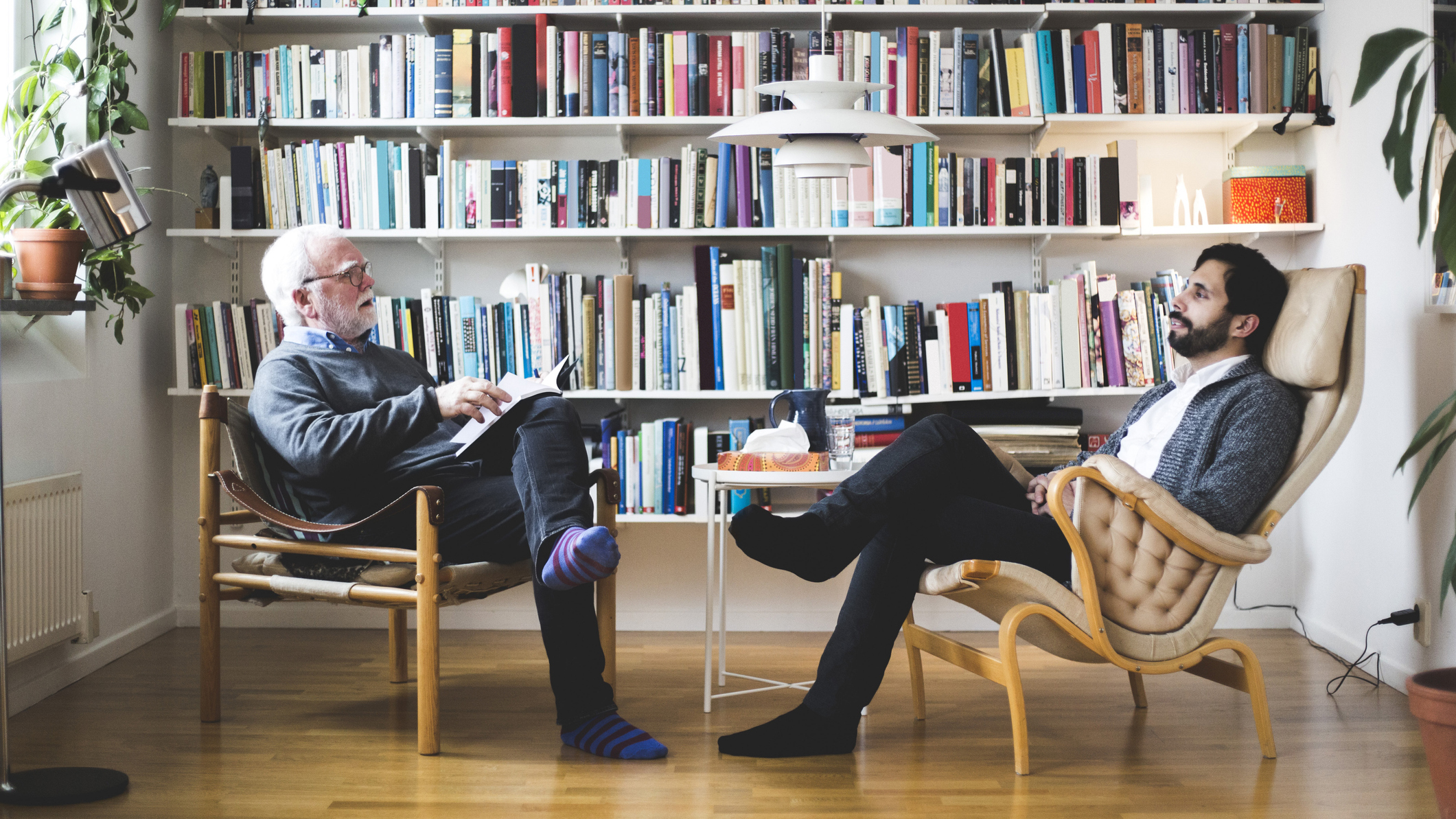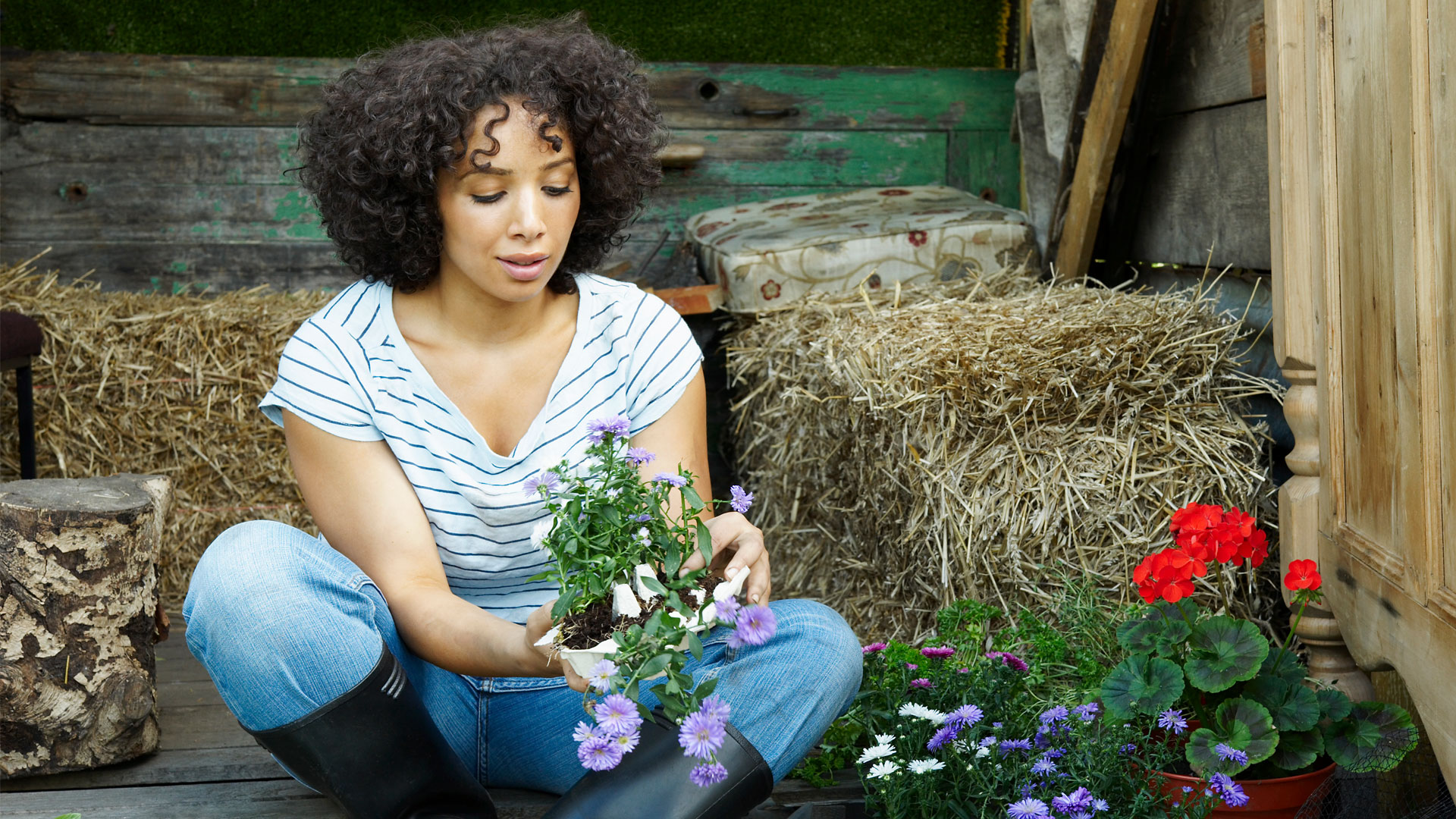With so many of us stuck at home due to the coronavirus, there’s been a huge rise in home gardening, where green-fingered gardeners have been planting up and growing some pretty impressive things.
But, can gardening really help your overall mental health? Well, we recently revealed the mental health benefits of flowers and it seems gardening, in general, has its benefits too.
Charles Harpur, who studies at Royal Botanical Garden Kew in the UK, is an expert when it comes to all things flora and fauna and here he shares his ideas on how gardening can have a positive impact on your mental health, especially during the coronavirus pandemic.
1. How can gardening improve your mental health?
Getting out in the garden has many benefits. First of all, the physical element of gardening means our minds can be focused on something which Charles suggests “is a mindful exercise which can provide focus and distract us from worries and relentless overthinking.”
Much in the same way as some of the best meditation apps, gardening can give your mind something to really zone in on.
Even something as simple as getting out your lawn mower can be classed as a physical activity that allows you to get a much needed Vitamin D and endorphin hit. And it’s not just the physical benefits that are great either, Charles adds that getting out with nature gives us a sense of purpose.
“By getting our hands in the soil and cultivating plants, we connect with the natural world and are reminded that we are a part of something much bigger than ourselves."
2. How can gardening give you a sense of purpose?
It’s no secret that some plants can be pretty time consuming to look after, so what’s the real benefit of having them and why bother going to the effort of looking after them? Well, Charles revealed that gardening can really provide a sense of purpose.
“Being responsible for the health and vitality of plants can get you out of bed in the morning, even when there seems to be no other reason to.”
If you’ve got a pretty decent selection of plants, they do require a bit of a routine in terms of pruning, feeding, sowing, and watering, all of which Charles suggests can ‘provide a much needed structure to the day.’ For some, even getting out the hedge trimmer, or using a strimmer can be rewarding when you see the finished product.
As well as that, when life isn’t in lockdown, gardening can provide a fantastic sense of community, and meeting up with others to tend to a garden can be a great way of connecting with others, as well as plants.

If you're experiencing mental health problems, it's always best to speak to your doctor or a healthcare professional.
3. Which plants or flowers are associated with happiness?
With a huge trend in house plants at the moment, each person’s favorite plants and flowers will still vary massively. Charles explains that “happiness can be associated with different plants, for different people, at different times of the year.”
Some fail-safe plants that are associated with happiness though, include sunflowers in the summer and bulbs such as Narcissus in the spring. Bright colors often are associated with happiness and feature in many of the best flower delivery bouquets.
Charles adds: “We all connect with plants in our own unique way and the joy of creating a garden is that we can select those that make us happy.”
4. How can gardening give a sense of purpose during the coronavirus pandemic?
“Lockdown presents us with some unique challenges. We may have garden space or a simple windowsill, but the challenge associated with both should be embraced in these unusual times.
“See what can be grown in the space and conditions available and enjoy tending to your plants.”
Even if you’re very limited on outdoor space, then check out our balcony decor ideas to create an inviting alfresco space. Or, if you have got a decent backyard, head to our round up of 5 ways to make your garden summer-ready.
For some gardening inspiration, check out Black Girls With Gardens on Instagram or swoon over Kew Gardens’ beautiful blooms.
There are various websites and apps where you can find support for managing mental health problems. These include the Anxiety and Depression Association of America (ADAA), the American Psychiatric Association, and Mental Health America.

